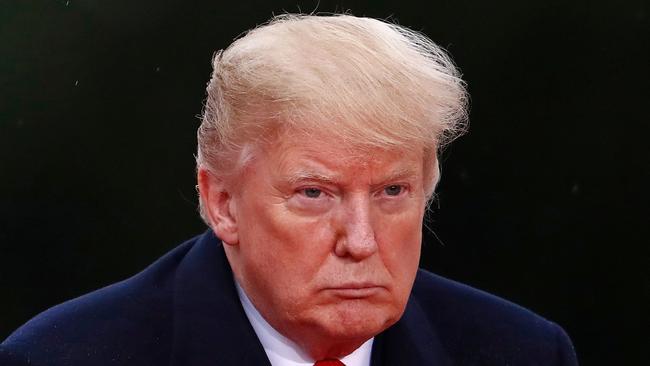Morrison backs Trump’s trade plays
Scott Morrison has mounted the strongest defence of any allied leader so far of Donald Trump’s trade policies.

Scott Morrison has mounted the strongest defence of any allied leader so far of Donald Trump’s trade policies, denying that Washington has turned protectionist because of its imposition of tariffs on China.
“The US wants to see greater trade and more open trade and they want to see it on better terms,” the Prime Minister told The Australian in an interview in his Sydney office. “It is yet to be established that the US is pursuing a protectionist policy.”
Mr Morrison said he did not agree with the protectionist interpretation of the administration’s trade policy.
Mr Morrison leaves today on a trip to Singapore and Papua New Guinea for APEC and ASEAN-related summits, during which he will meet US Vice-President Mike Pence, Chinese President Xi Jinping, Japan’s Prime Minister Shinzo Abe and a range of regional leaders.
He gave a distinctive reading of US trade policy.
“If I could summarise US policy, it is that what they’ve been doing until now has not produced that (freer trade) so there should not be an expectation that they’ll continue to do things the way they have been.”
But Mr Morrison makes a controversial judgment: “That doesn’t mean their objective has changed — their objective being a more open, freer trading system around the world, with a rules-based order, and everybody respecting those rules and those rules not being stacked against any one group.
“They have particular views about how things affect them, then there are other issues around intellectual property and so on where we have said there are some real issues here and things that need to be resolved.”
Stressing that it was too early to conclude that the US had made a long-term switch to protectionism, he said: “You can only judge it on the results, not the rhetoric, so let’s see.”
Mr Morrison cited the trade deals the Trump administration had done with Canada and Mexico and said many commentators saw early Trump trade moves against those nations as indicating long-term protectionism, but the result was new trade deals.
Mr Morrison also stressed that his government was not taking a position for or against the US or China in their trade dispute: “We’re not really judging either party in this because we trade with both and we’ve been successful (with both), whether it’s staying clear of US tariffs on steel and aluminium or with China, which is our biggest trading partner.
“We maintain a pragmatic balance.”
This is Mr Morrison’s first Asian summit season, but soon after the APEC and East Asia summits he will attend a G20 summit, where he will meet the US President.
Early yesterday, in an interview with David Speers on Sky TV, he slightly misstated government policy when he said definitively that territory in the South China Sea was not Chinese territory.
He cleared this up in a series of later interviews, confirming that Canberra does not take a position on the merits of respective nations’ claims to territory in the South China Sea.
Mr Morrison told The Australian: “We are not picking sides in the dispute but we continue to exercise our own freedom of navigation. We move through the region in a very transparent and practical way, not seeking to escalate anything.”
Mr Morrison confirmed Australian ships had so far not sailed with 12 nautical miles of disputed territories in the South China Sea, whereas the US uses the term freedom of navigation to mean deliberately sailing within the 12 nautical mile limit to establish that it does not recognise Chinese claims to sovereignty. While confirming that no Australian navy ship or plane had so far gone within the 12 nautical mile limit, Mr Morrison declined to be drawn on whether the government would consider doing so in the future.
He rejected the suggestion by Australian Strategic Policy Institute head Peter Jennings that the Foreign Investment Review Board should be established as a separate statutory agency. As treasurer, Mr Morrison sharpened the national security focus of FIRB by appointing former ASIO boss David Irvine to the board. Mr Irvine is now the FIRB chairman.
Last week, the Treasurer, Josh Frydenberg, acting partly on FIRB advice, rejected the proposed acquisition by Hong Kong-based CK of APA gas pipeline group.
Mr Morrison said the reforms he had made to FIRB, combined with the establishment of the Critical Infrastructure Centre, meant the structure was now “the right one”.
“The act provides for (investment approval) decisions to be made in the national interest,” he said.



